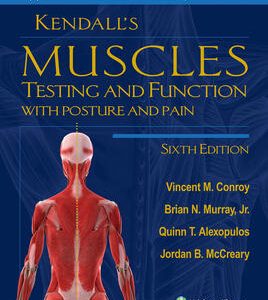
Mark T. Gladwin, MD, dean and John Z. and Akiko K. Bowers Distinguished Professor, University of Maryland School of Medicine, and vice president for medical affairs, University of Maryland, Baltimore. “Clinical Microbiology Made Ridiculously Simple,” Ninth Edition. (MedMaster, 2022)
“Clinical Microbiology Made Ridiculously Simple” is a brief, clear, thorough, and updated approach to clinical microbiology, brimming with mnemonics, humor, summary charts, and illustrations. Topics include Ebola, AIDS, flesh-eating bacteria, mad cow disease, hantavirus, anthrax, smallpox, and tuberculosis; the latest antibiotics; pandemic flu, including H7N9; SARS-like coronavirus; hepatitis C treatment options; HIV diagnostics and approved HIV meds; Zika virus; measles; and a new chapter on the latest emerging infectious diseases and drug-resistant bacteria.
The major update to this book is the addition of a new chapter on the SARS-COV-2 virus and COVID-19 disease, which delves into the nature of the virus such as infectivity within the body, transmission between individuals, timeline of infectivity, symptoms, risk factors, therapeutics, and vaccines approved for use.
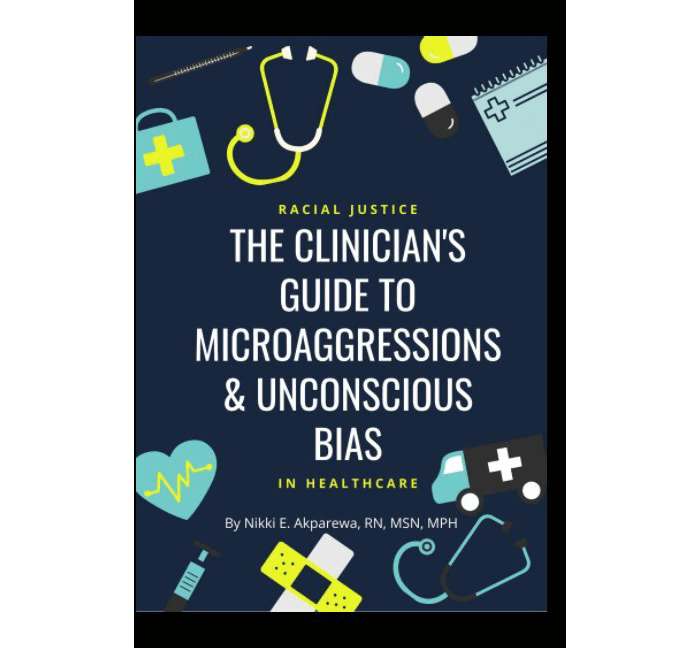
Nikki E. Akparewa, RN, MSN, MPH, clinical instructor, Family and Community Health, University of Maryland School of Nursing. “The Clinician’s Guide to Microaggressions and Unconscious Bias: Racial Justice in Healthcare.” (Blurb, Inc., 2021)
Health care organizations and systems have been scrambling to respond to health inequity. This workbook is a transformational tool to put teeth to racial justice statements so that organizations can begin to align people with intentional processes. It is for the everyday clinician, faculty member, and clinical instructor who is searching for the tools needed to have authentic conversations about race, racism, and health equity. It also is for senior leaders and strategic business partners seeking to measure and improve performance around workplace safety. If you are not proactively linking processes to address inequity, you are not preparing health care professionals to be fully competent providers. And if businesses don’t create fully competent providers, their profit margins diminish as money is wasted on addressing harassment and bullying behavior. The workbook includes activities, definitions, and clinical scenarios that can be used to demonstrate ways to overcome biased health care and give patients the tools they need to thrive. There also are prompts to take action with guidance on next steps for those who want to bring social justice into clearer focus in hospitals, health systems, and academic institutions.
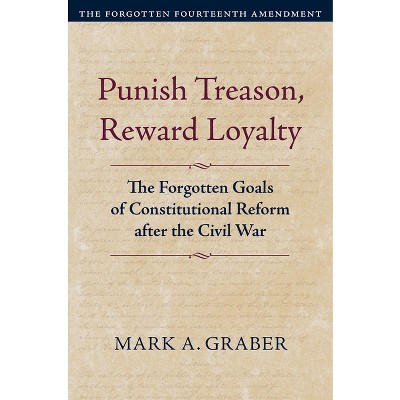
Mark Graber, JD, University System of Maryland Regents Professor, University of Maryland Francis King Carey School of Law. “Punish Treason, Reward Loyalty: The Forgotten Goals of Constitutional Reform After the Civil War.” (Kansas, 2023)
Graber aims to restore to contemporary memory the goals of those Republican and Unionist members of Congress who drafted the Fourteenth Amendment during Reconstruction. In particular, he argues, Republicans emphasized Sections 2, 3, and 4, which they believed would prevent “rebel rule” by ensuring loyal majorities in both the national and state governments. They were far less concerned with the individual rights in Section 1 that have occupied Americans for more than a century. This line of inquiry breathes new life into the more obscure sections of the Fourteenth Amendment, offering remarkable modern applications. “Whether former President Trump is eligible for the presidency depends on Section 3,” said Graber, referring to the Jan. 6 insurrection and the ineligibility for office of those who, according to Section 3, have “engaged in insurrection or rebellion against the same, or given aid or comfort to the enemies thereof.” “Voting rights advocates,” he added, “are taking a new look at Section 2,” which changed the way representatives with the House of Representatives and Electoral College were allocated.
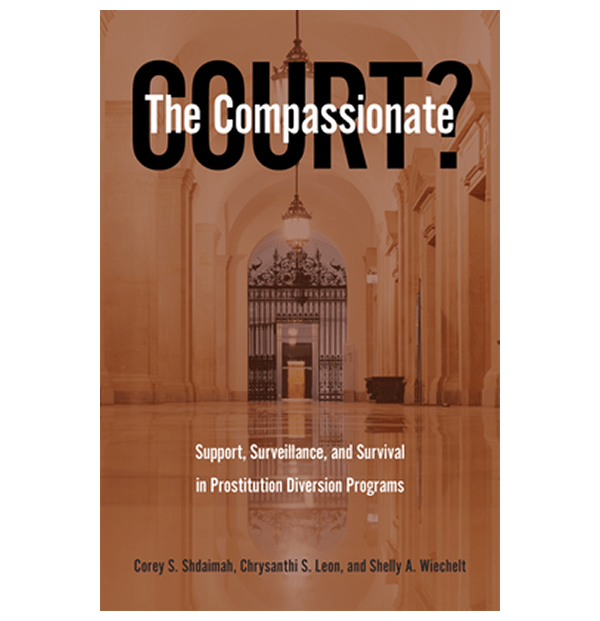
Corey S. Shdaimah, PhD, LLM, LLB, Daniel Thursz Distinguished Professor of Social Justice, University of Maryland School of Social Work. “The Compassionate Court? Support, Surveillance, and Survival in Prostitution Diversion Programs.” (Temple University Press, 2023)
Laws subject people who perform sex work to arrest and prosecution. “The Compassionate Court?” assesses two prostitution diversion programs (PDPs) that offer to “rehabilitate” people arrested for street-based sex work as an alternative to incarceration. However, as the authors show, these PDPs often fail to provide sustainable alternatives to their mandated clients. Participants are subjected to constant surveillance and obligations, which creates a paradox of responsibility in conflict with the system’s logic of rescue. Moreover, as the participants often face shame and retraumatization as a price for services, poverty and other social problems, such as structural oppression, remain in place. The authors of “The Compassionate Court?” provide case studies of such programs and draw upon interviews and observations conducted over a decade to reveal how participants and professionals perceive court-affiliated PDPs, clients, and staff. Considering the motivations, vision, and goals of these programs as well as their limitations — the inequity and disempowerment of their participants — the authors also present their own changing perspectives on prostitution courts, diversion programs, and the criminalization of sex work.
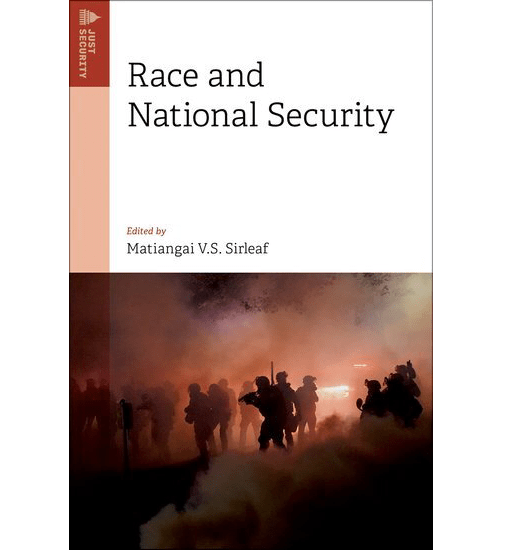
Matiangai Sirleaf, JD, MA, (Editor), Nathan Patz Professor of Law, University of Maryland Francis King Carey School of Law. “Race and National Security.” (Oxford University Press, 2023)
On the national and global stages, we are witnessing a reckoning on issues of racial justice. This historic moment that continues to unfold in the United States and elsewhere also creates an opening to spark and revitalize debate and policy changes on a range of crucial topics including national security. By surfacing the depths to which white hegemonic power influences our institutions and cultural assumptions, we gain a more accurate understanding of how race manifests in national security domestically, transnationally, and globally. In “Race and National Security,” leading experts challenge conventional interpretations of national security by illuminating the underpinning of white supremacy in our social consciousness. The volume centers the experience of those who have long been on the receiving end of racialized state violence. It finds that re-envisioning national security requires more than just reducing the size and scope of the security state. Contributors offer visions for reforming and transforming national security, including adopting an abolitionist framework. “Race and National Security” invites us to radically reimagine a world where the security state does not keep Black, Brown, and other marginalized peoples subordinated through threats of and actual incarceration, violence, torture, and death. “Race and National Security” serves as a catalyst for remembering, exposing, and reconceiving the role of race in national security.


